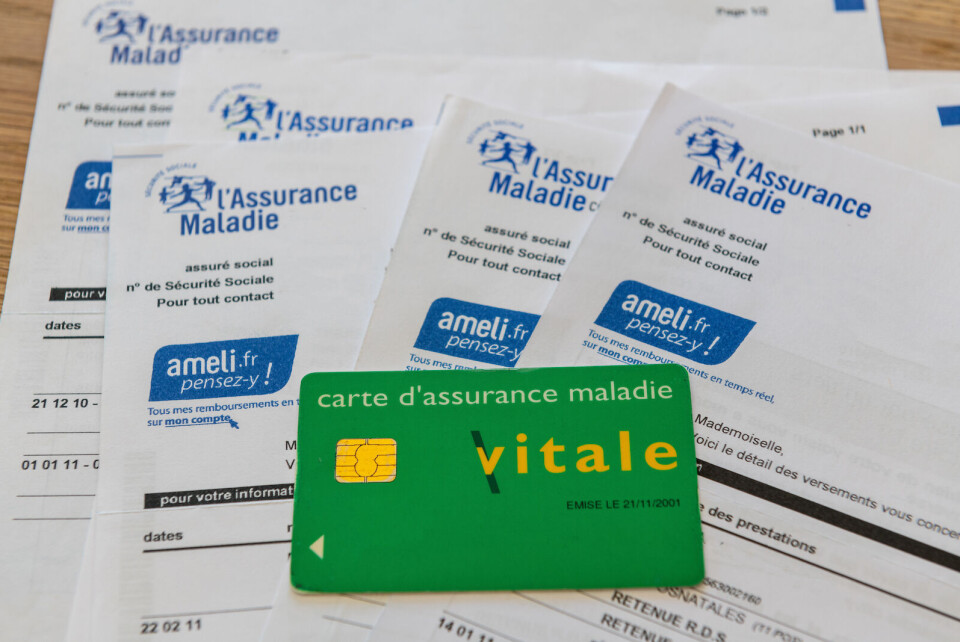-
Roadside noise cameras await approval to start issuing fines for loud vehicles in France
The devices known as meduses already exist in several cities but so far have only been ‘instructional’
-
White storks make strong return in France via nest ‘platforms’ and clipped wings
The Ligue pour la Protection des Oiseaux shares the conservation challenges in saving these birds from extinction
-
Hosting scheme in south-west France lets newcomers sample lifestyle
Households in nine Dordogne communes volunteer under Mes Nouveaux Voisins scheme
Millions in France targeted in ‘well executed’ carte Vitale text scam
People are sent a message saying that they must update or renew their card and pay a delivery fee. The scammers then use their bank details to spend large amounts of money

Several million people in France have already been targeted by scammers pretending to be from Assurance maladie, who send a text telling the recipient that they must update or renew their carte Vitale.
Read more: Warning over new scam on French carte Vitale healthcare cards
The texts contain a message reading: “Votre nouvelle carte Vitale est disponible. Veuillez remplir le formulaire afin de continuer à être couvert via le site” (You new carte Vitale is available. Please fill in the form via the website in order to continue being covered).
This is [generally] accompanied by a link beginning with bit.ly, which takes people to a site closely resembling that of Assurance maladie. However other forms of false website names and domains are equally noted.
It should be noted, however, that Assurance maladie will never ask for your medical or bank details by message.
It will also never ask you to update your carte Vitale online - this is usually completed in pharmacies.
Victims are then asked to pay a delivery fee of around €0.99 for the new card. However, the scammers then use their card details to spend huge amounts of money on the internet.
Sometimes, the person may also be contacted by someone claiming to be from their bank, who will tell them that they have fallen victim to identity theft and that they must provide further details before they can be reimbursed.
One woman who was tricked by the scheme lost €1,200, partly because the scammers were able to contact her through a number which should have belonged to her bank.
“It was unbelievable, the scammer’s messages were criss-crossed with those of the bank within the same SMS conversation,” she said. “To think that I thanked them when they had stolen €1,230 from me.”
Her bank then refused to reimburse her, saying that she had “been negligent” by giving her bank details to the scammer.
This scam began in January, but there have been repeated waves of it since, with an expert from anti-scam service Cybermalveillance.gouv.fr telling Capital: “It’s not stopping, it is the con which has returned the most this year,” using “very well made sites, without errors.
“The scammer will have all of the necessary information to be able to make their attack seem like a credible operation. They will call you, say: ‘Are you Mr or Ms X who lives in X and whose card number is X?’
“And then, when they say that there have been fraudulent actions on their card, the victim will begin to trust them. [So], they will fall for the different ploys that the cybercriminal will carry out on them.”
This scam is currently the second most common in France, only being beaten by the fraudulent scheme which sees innocent people contacted by the ‘police’ regarding supposed accusations of paedophilia.
How can I spot a scam?
If you are sent a message or email which seems suspicious, you should examine it carefully for any errors or inconsistencies which may reveal its fraudulent nature.
If in doubt, do not click any links, and remember that you can always call the organisation from which the message purports to originate to check whether they have indeed tried to contact you.
If you have already shared your bank details, you should cancel your card as soon as possible so that the scammers cannot use your account.
If you think you have been the victim of a scam, you can report the scheme and find advice on how to proceed via the Cybermalveillance site.
Related articles
Cheque fraud on rise in France: Tips on how to avoid it
New kind of bank card fraud hits car park payments in France
Warning over new income tax declaration scams in France
























